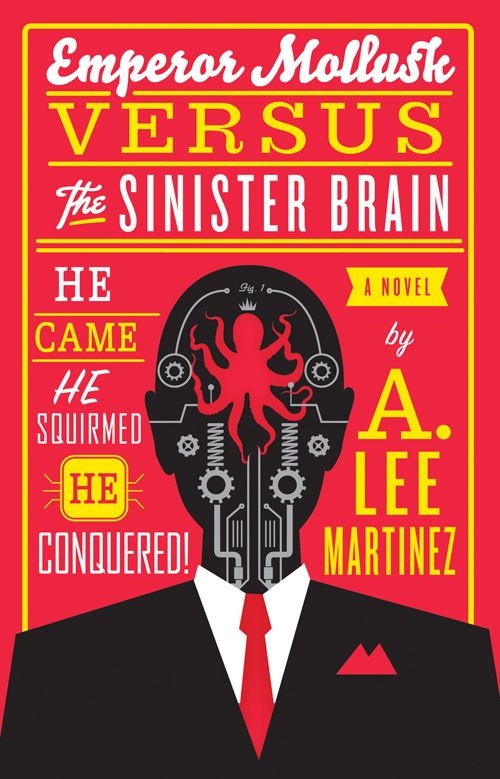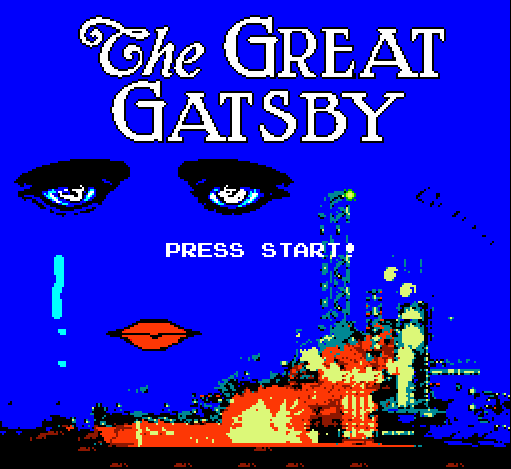Okay, I’ve had time to sleep on it and I have to admit that The Dark Knight Rises is better than I thought it was. It’s already the next day and I’m still thinking about it. I’m reading online reviews and discussions about the themes and characters, so evidently the movie is one of those slow-burning ones where it takes you a while to fully digest everything. I’m revising my opinion upward.
No Man’s Land
I just saw The Dark Knight Rises. It’s an interesting little blockbuster.
All in all, I would say I liked it. I think the second was superior but I also think this film is better than the first. However, in the years since The Dark Knight I’d forgotten how melodramatic the dialogue in Nolan’s Batman films could be. It also had a somewhat clumsy thematic link to the Occupy Movement, the story being based mostly on the No Man’s Land arc from the comics, where Gotham City is cut off from the rest of the United States and anarchy rules the land.
I do think a stronger thematic connection could have been made between the villain, Bane, and Batman, particularly since they are both figures who deliberately disregard established social structures, but perhaps it’s better that link shouldn’t be returned to when it was used so well in The Dark Knight (the link being violence and insanity in that case).
The movie was good, not great, which makes it sound somewhat disappointing for what’s supposed to be a summer blockbuster, but then again, I can’t remember the last time I exited a movie theatre thinking, “That was awesome!” Perhaps I’m just picky.
Get your war on

Thanks to The Onion AV Club I’m currently reading Emperor Mollusk versus the Sinister Brain. From the cover art and the fact that the book is reviewed in actual paper newspapers one might think that it’s a semi-autobiographical story about growing up as a Jewish science fiction fan in 1960’s New York. The title, however, is gloriously literal: it’s a story about a conflict between an actual world-conquering mollusk and a disembodied brain. It’s not a metaphor, it’s not an allegory, it is in fact exactly what it says on the tin.
It’s really quite fun.
Isn’t it good?
After all this time I’ve finally seen the film adaptation of Norwegian Wood. I’m really not sure what to think.
As it is, I’m not sure how to evaluate Norwegian Wood as a movie. Having read and liked the book, I already knew what was supposed to be happening. I don’t know how someone approaching the movie as a movie would evaluate it.
However, I am not that hypothetical person. I did read the book and then I did see the movie. I can only react from my own experiences and not from someone else’s. So how does the movie stack up against the book?
First, it’s definitely not a poor translation of a book to film. It successfully captured the quiet mood of the book but at the same time it’s also its own thing. Props for that.
Still, it should be no surprise that I still prefer the novel. That’s almost always the go-to answer when evaluating book-to-film adaptations, with a few notable exceptions. Yes, Midori is peculiarly forward in the film, but it’s a pity there wasn’t enough time to show the variety of her strange flirtations with Watanabe.
Additionally, I’m not sure how well the movie conveyed the strangeness of the book. Haruki Murakami’s stuff is always suffused with an air of quiet strangeness (technically I believe it would be termed magical realism but somehow labelling it makes it seem more dry and boring). The film got the quiet part right but the strangeness didn’t come across as well.
Also, this is probably the only Haruki Murakami novel that will ever be turned into a movie. It’s probably the most conventional one in terms of plot and yet the movie adaptation by necessity still turned out a bit peculiar in conveying its narrative. Good luck filming something like The Wind-Up Bird Chronicle.
Anyway, I don’t regret watching this movie. It’s not a bad way to spend a hot Sunday afternoon.
How to stuff a human corpse into a refrigerator
Homo sacer: a human being who exists solely to be brutalized and killed.
Girlfriend: in superhero comic books, a human being who exists solely to be brutalized and killed.
A realization that occurred to me when reading through fan reactions to the stunt announcement that Green Lantern is gay (but not the famous one, merely the second tier character that no one is familiar with).
The glory of violence
I saw The Raid: Redemption yesterday. It’s hard to describe my reactions to the movie without speaking entirely in clichés. It actually was balls-to-the-wall action. It actually was superb and thrilling. It was almost literally pure action (I think there may have only been 10 minutes in total where nothing violent was going on). It’s not ironic and it’s not metatextual. It’s just legitimately good.
My god, it’s incredible.
On joining the Snooty Book Readers Club
I’m not sure of the number of books I read in a year, but it’s definitely in the dozens and perhaps in the neighbourhood of fifty or more. Don’t be impressed, though, since the majority of those books had a picture of either a dragon or a spaceship on the cover (sadly, I don’t think any had both). However, I’ve pretty much read all of the books in my house right now and am reduced to the last book I own that I still haven’t finished reading – The Tempest, by none other than William Shakespeare.
Theoretically, I’ve been reading that book for over a year now. I originally bought it, used, because I needed something to read at the laundromat for the days when I was just too lazy to go to the library beforehand. However, that plan pretty much fell apart not too long after I put it into effect, which meant that as far as I was concerned, Prospero remained eternally stuck in the prologue of the play describing how he ended up stuck on the same island as the cast of Lost.
However, riding the subway regularly has reminded me forcefully of how much I hate riding the subway, so I’m forced to find ways to pretend that I’m not on the subway, and some days Metro is just too insipid for me to stomach. I was surprised by several things. First, I was surprised by how easy it was for me to follow the story despite the Elizabethan poetic dialogue. It shouldn’t have been as much of a surprise as all that, since technically Shakespearean language counts as Early Modern English, but I was able to make sense of the dialogue without even having to look up too many definitions (the edition I have has notes and explanations on the facing page). I remember having more trouble with Shakespeare in high school, but then again, that was before I got used to reading dense theoretical works regularly, so all that time spent deciphering Judith Butler’s gibberish was actually good for something.
The second surprise was that the funny scenes were actually funny to me. Not uproariously funny, but certainly good for a chuckle. Humour is something that can be iffy in a cross-cultural context, and the past definitely counts as a different culture – heck, it’s already a foreign country. But the tale of the drunken douchebags travelling around and snarking at things with their pet cave troll could make a pretty decent road trip movie today. Heck, you could insert some of their shenanigans into The Hangover without much rejiggering.
Also, I finally get why this play is so beloved in postcolonial studies. That was pretty much the reason why I got a copy from the used bookstore, after all.
Anyway, I can now rest easy in finally getting my high brow credentials. Expect me to write exclusively about Glenlivet and cork taint from now on.
Gymnopedie No. 1
The last episode of Community ends with a piano piece that was maddeningly familiar to me, but I couldn’t quite place it. Apparently it was from My Dinner With Andre, but knowing that fact didn’t scratch my itch since I’ve never seen that movie at all. So then I looked for the piano music on Youtube and found the answer in the comments: Gymnopedie No. 1 is the piece used in the trailer for The Disappearance of Haruhi Suzumiya. Whew, I’m glad I found that out, not knowing the answer was really starting to bug me. And to think, I would have been simply out of luck in the days before the Internet. Thank you, Youtube! Also Internet Movie Database, that site has answered innumerable questions for me as well.
Ghosts of the past
I ran some of my writing through an online analyzer and it gave me this result. I guess Kipling isn’t so bad, but I haven’t read him in years and I was never super into him, so he probably didn’t influence me that way. Then I ran another sample through the analyzer and got this:
Oh come on, I’ve never even read Lovecraft! Be more consistent, literature robot! I was actually afraid I wrote like Isaac Asimov, I read most of Foundation when I was 10 and I think I absorbed Asimov’s sparing descriptions. Strangely enough, the Lovecraft sample was from a non-fiction essay. I guess Lovecraft’s writing sounds like dry academic text.
Nick Carraway, Action Hero

Ever wonder what The Great Gatsby would have been like as a mid-80s Japanese video game? Yeah, neither have I. But a couple of enterprising chaps have answered the question that was burning in no one’s mind. Ladies and gentlemen, I give you The Great Gatsby by F. Scott Fitzgerald. The fake manual and fictional provenance propels it further into the heights of absurdity, but the cut scene where Gatsby teleports while gazing at the green light from Daisy’s house is already sublime in its awful glory.
You’ve got to love the fact that you have to fight Meyer Wolfsheim’s Jewish gangsters along with hobos, flappers, and the Black Sox. But where is the ghost of the Dutchman from? I don’t remember that from the book, but admittedly I haven’t read it in a long while.
Video game trivia: the titular character of The Legend of Zelda video game series was named after Zelda Sayre Fitzgerald, wife of dear old Francis Scott.
EDIT:
Holy crap, some company made Gatsby into an adventure game. It’s not a parody like the game above, it’s an actual thing that’s supposed to make money and everything. It looks like one of those classic inventory games where you click on everything trying to find the object you need to solve the puzzle you’re stuck on. Pretty pictures and you even have a GOSSIP action, but I wonder if the game makers kept Tom’s fascination with racist literature?

